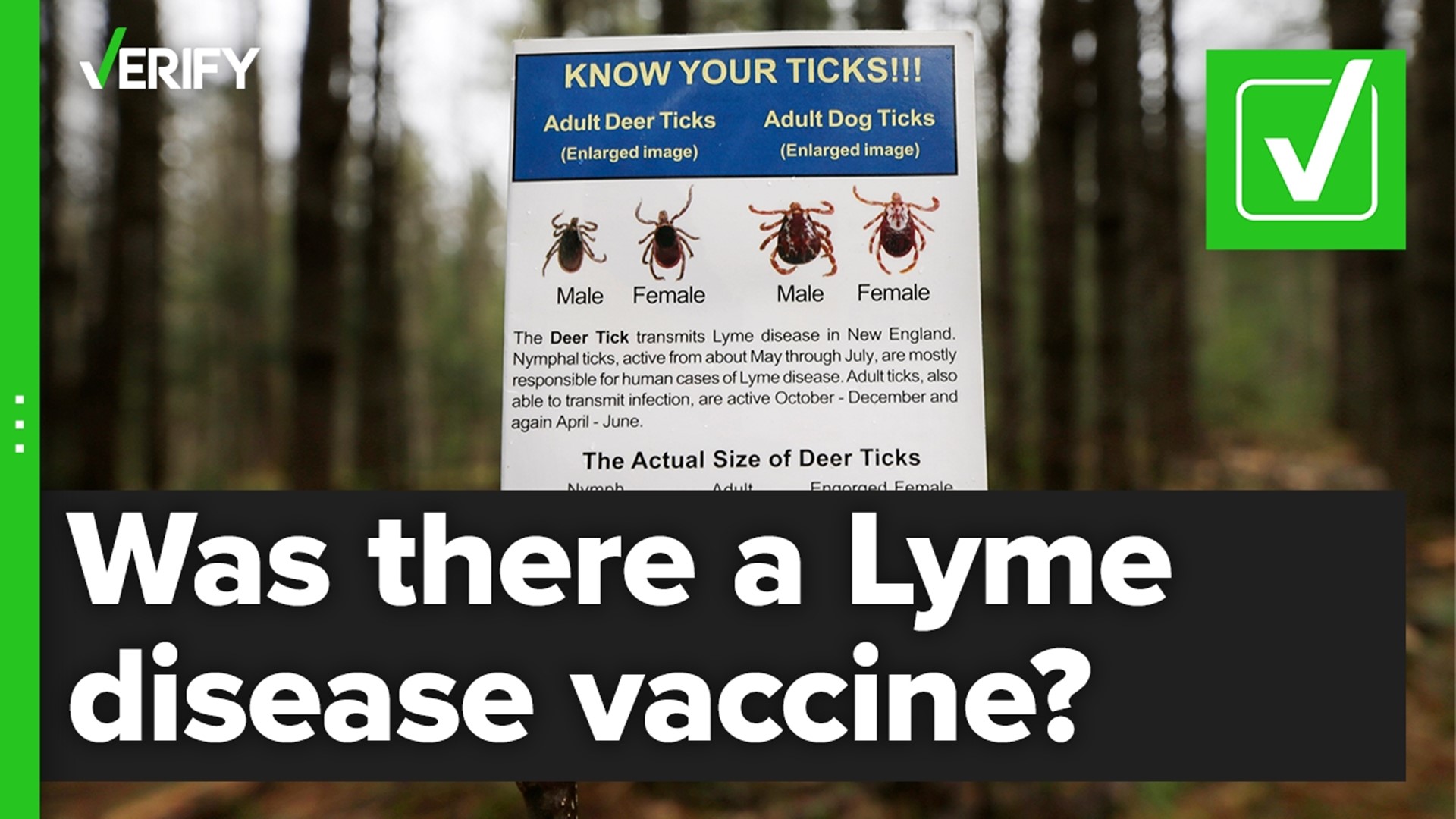The CDC estimates nearly half a million Americans get Lyme disease every year.
The illness is transmitted through tick bites. Early symptoms are usually pretty mild, like rashes or fevers, but if left untreated Lyme disease can spread to the heart or nervous system.
It’s treatable with antibiotics, but there’s currently no vaccine on the market. A viral post on Twitter claimed there used to be, and that it got taken off the market because the company wasn’t making enough money from it.
THE QUESTION
Did there used to be a vaccine against Lyme disease?
THE SOURCES
THE ANSWER
Yes, there was a vaccine against Lyme disease that was available from 1998-2002 before it was discontinued.
WHAT WE FOUND
According to the CDC, Lyme disease is “the most common vector-borne disease in the United States.” Vector-borne diseases are those transmitted to people through ticks, fleas, and mosquitos.
By analyzing health insurance records, the CDC estimates roughly 476,000 Americans are treated for Lyme disease every year.
The most common symptom is a rash, which can be accompanied by “fever, chills, fatigue, body aches, headache, neck stiffness and swollen lymph nodes,” according to the Mayo Clinic. If left untreated for a long period of time, Lyme disease can cause “meningitis, temporary paralysis of one side of your face, numbness or weakness in your limbs, and impaired muscle movement.”
It’s treated with antibiotics, which are more effective the sooner they are administered. However, tick bites can commonly go unnoticed.
Prevention is heavily emphasized by public health experts. People spending extensive time outdoors, especially in areas where blacklegged ticks live – historically New England but increasingly other parts of the country – should use repellant and perform regular tick checks.
But an aspect of prevention that’s not currently available is a vaccine. The screenshot included in the viral tweet is legitimate; the CDC has a web page that gives a brief overview of the vaccine’s history.
In 1998, the FDA approved LYMErix, a vaccine created by SmithKline Beecham, which has since become GlaxoSmithKline. Clinical trials found it to be 76% effective against Lyme disease, if all three doses were administered.
The high number of doses required, cost of the shot and relatively mild nature of Lyme disease caused initial reception to LYMErix to be mixed. Nonetheless, more than a million doses were administered in 1999.
But by 2002, that number had fallen to only a few thousand, and the company discontinued the drug.
So what happened over the course of those few years to cause demand for the Lyme vaccine to plummet so dramatically?
According to academic reviews of the history of the vaccine, claims of painful side effects led to a class-action lawsuit and negative media reports, despite a lack of scientific evidence that the vaccine was harmful.
During the review process for the vaccine, some scientists hypothesized that the shot could potentially trigger arthritis-like symptoms in patients with certain genetic markers. In a 2011 article, vaccinologist Gregory Poland wrote, “This led to significant media coverage, sensationalism, the development of anti–Lyme vaccine groups, such as the Lyme Disease Network, who urged withdrawal of the vaccine from the market, and eventually a number of class action lawsuits.”
In response to this backlash, the FDA conducted new studies. But those studies found “no difference… in the frequency of long-term joint symptoms between the vaccine and the placebo groups” – in other words, there was no evidence that LYMErix caused arthritis.
But the damage was done. A 2006 academic review says, “the decline in public tolerance for risk and uncertainty combined with the relatively low morbidity of Lyme disease contributed to the inability of the vaccine to find a market niche,” and the shot was pulled.
GlaxoSmithKline (GSK) settled the class action suit a year later, paying out attorneys fees but no damages to the alleged victims.
While GSK has never placed LYMErix back on the market, other drug makers are developing Lyme vaccines currently, according to the CDC.

